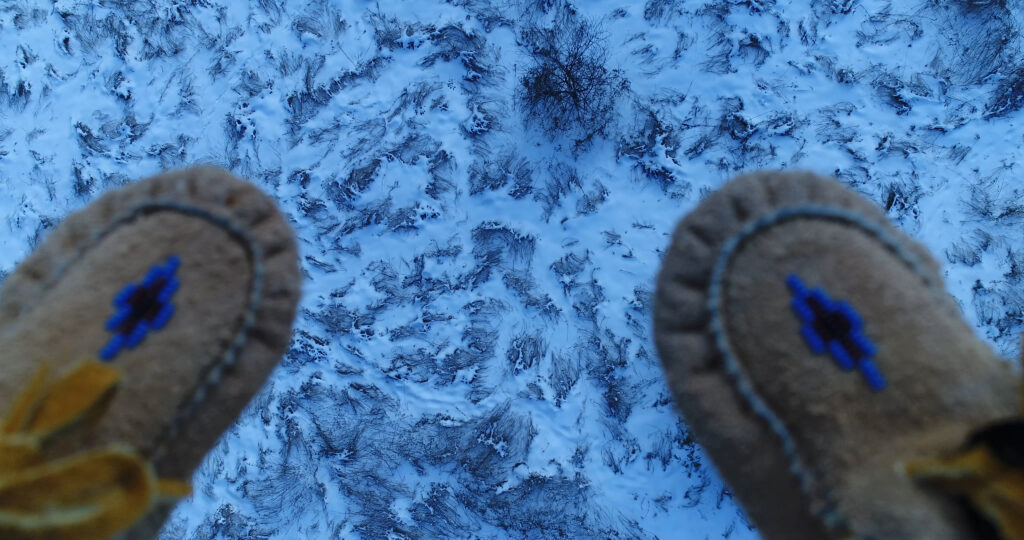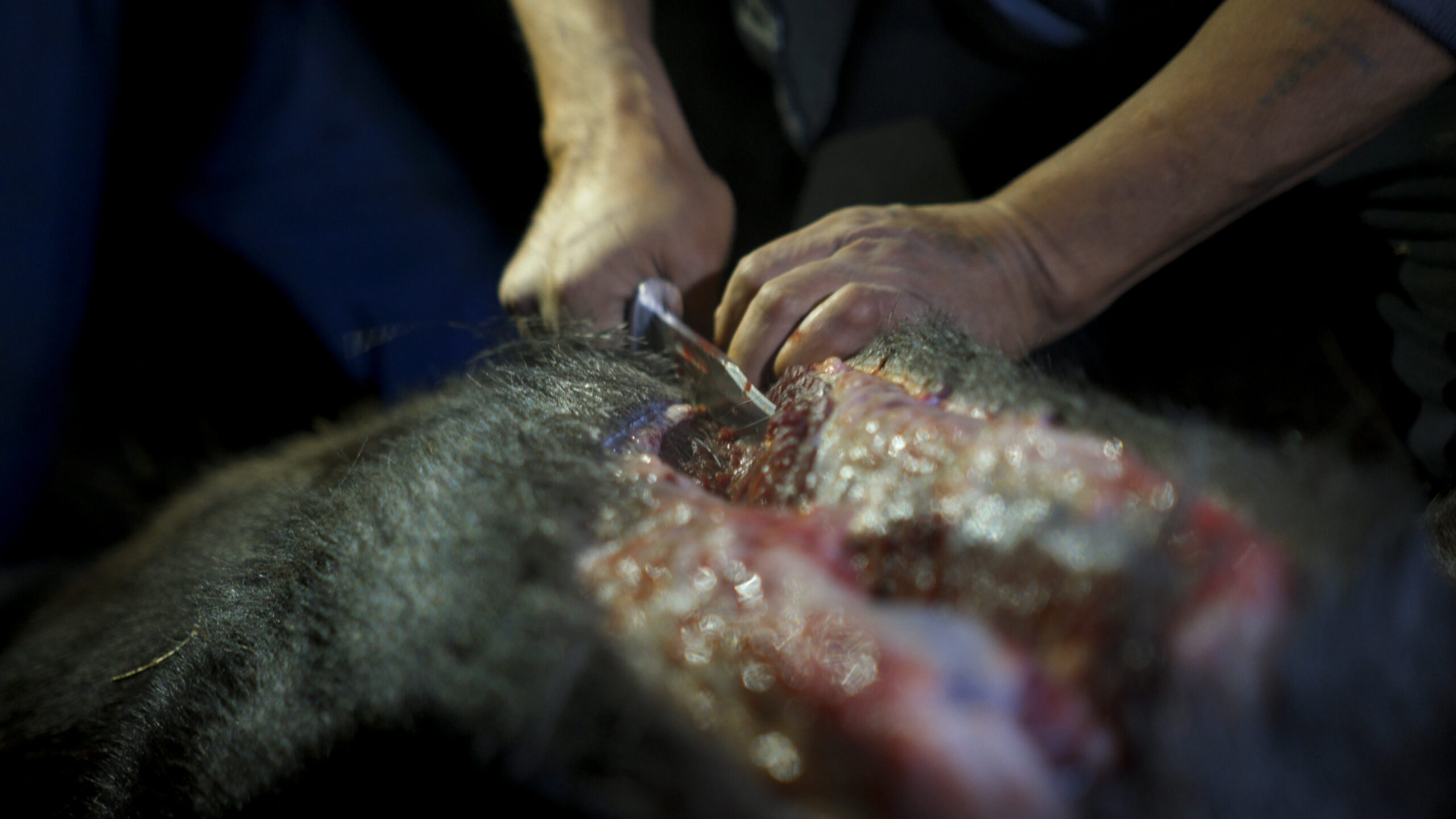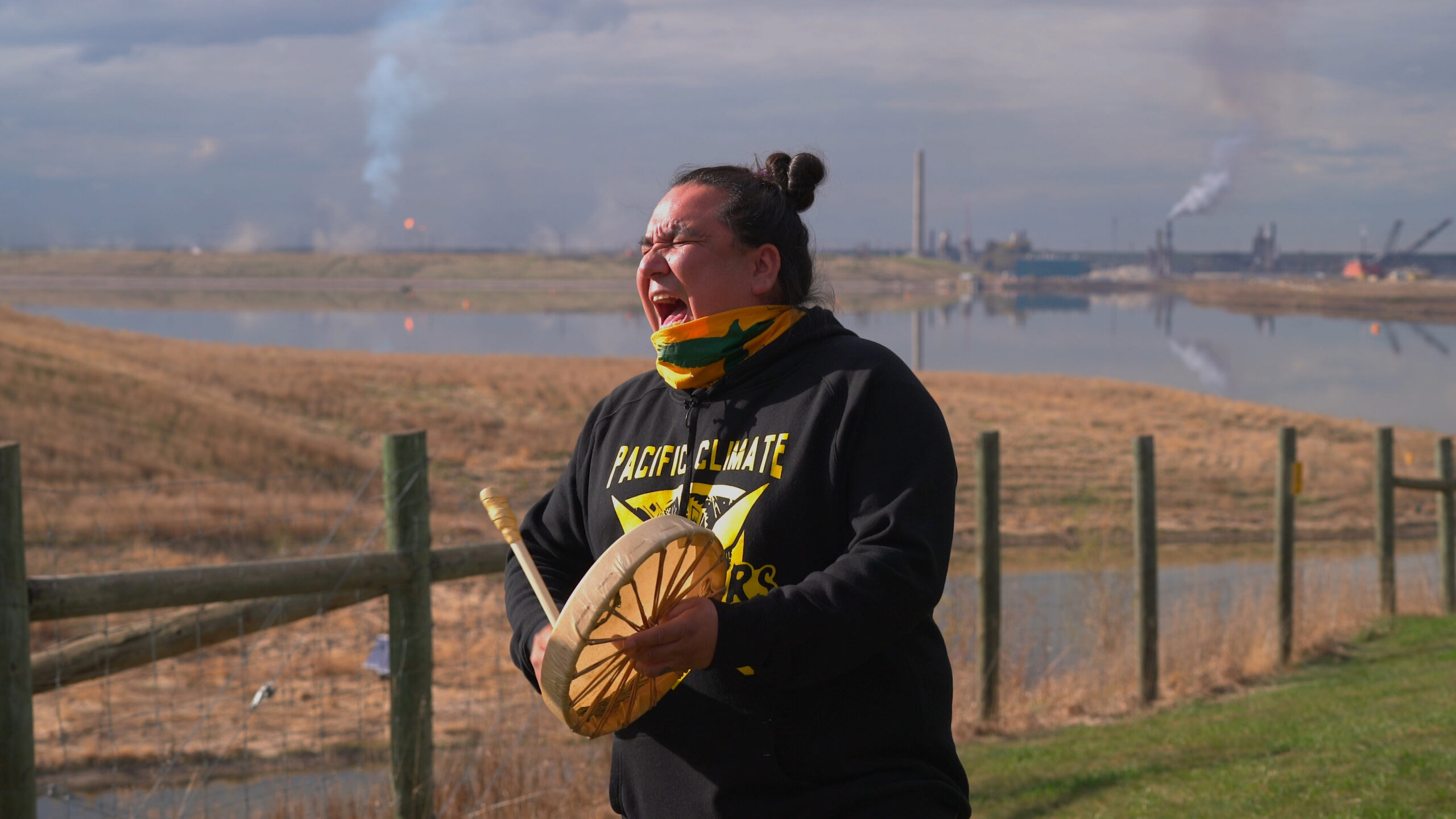
Rocky Mountain coal mine in Alberta takes next step to expansion
In Alberta, a massive open-pit coal mine near Jasper National Park is hoping to expand...
For Manitoban author, filmmaker and environmentalist Clayton Thomas-Müller, healing is about connection to the land.
His family hails from Pukatawagan, also called Mathias Colomb Cree Nation, in northern Manitoba, but Thomas-Müller spent much of his life in Winnipeg’s west end. His story, laid out in his 2021 memoir, Life in the City of Dirty Water, journeys through the trauma of his early life and his continual connection to the land, the rivers and his family’s trapline in Puk, as he calls it.
Over the last 20 years, Thomas-Müller has embedded himself in environmental and Indigenous justice organizing. His work has grown from downtown Winnipeg youth programs to speaking on Indigenous and environmental justice before the United Nations, to campaigning with a host of national and international environmental organizations. His work focuses on the deep ties between colonization, displacement, resource extraction and the climate crisis.

In advance of his Wednesday talk, titled Pathways to Sustainable Communities, at Winnipeg’s Park Theatre, we spoke about the connected crises facing not only Indigenous Peoples, but Canadians as a whole — and what needs to be uprooted for healing to grow.
What brought me into this was suffering. One thing that Native people share, aside from a lot of our cosmology and worldview in terms of the sacredness of place, is our shared experience when it comes to colonization. Everywhere I go I see the same thing: if you trail back long enough in a family history — and it’s usually only one or two generations, if not that generation — you find unique stories of displacement usually pinpointed to a corporation, or the military or some kind of colonial power.
Folks find themselves living in Canada’s inner cities, because Canada’s economic system is fundamentally based on the ongoing suppression of Indigenous Peoples’ collective rights, dispossession of Indigenous Peoples from our homelands. It’s inextricably linked to the Indian residential school policy and extractivism.
For a number of years I was able to work with hundreds of Indigenous communities who are supporting local campaigns against extractive corporations, coal-fired power plants, liquid natural gas plants — you name it — really dealing with the entire impacts of the energy system and capitalism on Indigenous Peoples.
We’re dealing with this incredible sickness, like a plague, and it’s tied to capitalism and colonialism. In my culture we talk about the rapacious Wetiko spirit. If you get possessed by the Wetiko, you turn into a cannibal. If you encounter a Wetiko, you notice they’ve eaten off the tips of all their fingertips; a Wetiko will eat their own family. It’s not necessarily evil, in our worldview there’s not good and bad, just balance. But if you let the Wetiko out, the Wetiko destroys the world. I believe this sickness the Wetiko brings, this insatiable hunger, is only accelerated by hyper-individualistic consumerism and capitalism. I believe we’ve created such an incredibly bad imbalance across Mother Earth and we’re now coming to terms with that in the context of hard-core climate science.

For me, there’s a deep spiritual wound, a scar on every Cree person’s heart, with what’s happened to our rivers. Our entire life was based on the river. We would travel at night, with the other animals, on the dog sleds up the ice. We can’t do that safely anymore because of the fluctuation of the water levels. We can’t put our nets in some areas under the ice because, again, of the fluctuation of the water. In the summertime, there are entire islands that have disappeared on my trapline because of the fluctuating water levels and the erosion that occurs when the water goes up and down. The hydroelectric dams were one of the most violent things ever to happen to our people. A lot of people don’t understand that Native people from where I’m from, who live in the city, are environmental refugees.
Community self-determination. We need to be promoting this. I think Canada has to take responsibility for its colonial past. The federal government has a price tag that it has to pay. Society has a price tag it has to pay. Before it can pay that price, they’ve got to get the story straight. There’s a well-funded, decades-old campaign to make people think Native people are a burden on the taxpayer, when the reality of it is that we’ve been subsidizing Canadian wealth for hundreds of years, because all of our lands are held in trust by the federal government.
All solutions to things like the existential threat of climate change point locally. At the end of the day the solution to climate change is community self-determination over our water, our sanitation, our food production, housing distribution, energy — especially energy — and transportation.
That emptiness inside, that hyper-individualism and hunger that the Wetiko spirit causes, we fill it with consumerism but the only way to really fix that sickness is by connecting to the sacredness of place by connecting to nature.

Native people are the experts at rapid adaptation and migration because we’ve been forced to become good at it.
We carry these vast libraries of ecological knowledge: millenia of intentional observation; trial and error; and the development of an apex species’ ability to manage an ecosystem in a non-ownership way. For me, this is why language and culture — not just going to ceremonies, but actually getting to go stay out in the bush, to go berry picking, to have the experience of putting a net in a lake, pulling it out, getting fish and building a smoker to dry your fish — these are things that everybody needs to experience.
I also think people need to stay committed to that conversation — that 60,000-foot question of what it is actually going to take for us to heal from the violence of colonialism. That’s a big question that’s going to take multiple generations to answer, but there are concrete, real-time solutions right now that can address the economic imbalance that exists, the disparity that exists for Canada’s most marginalized population. There are steps we can take in terms of the suite of legislation that this government needs to pass in order to deal with the Truth and Reconciliation Commission’s 94 recommendations and the suite of legislation this government needs to pass in terms of a just transition in regard to climate change and decarbonizing our economy.
We need to get our fossil-fuel intensive agriculture sector off fossil fuels, we need to get our truck and transport sector off of fossil fuels. That’s a huge responsibility that quite often, I think, freezes people in place. It can be very daunting. That’s why I go back to community self-determination and the small acts. We need to be focusing on what builds power in our communities.
Whatever Canada does in terms of political, economic or social reorganizing in relation to the existential threat of climate change is inextricably tied into whatever actions Canada, the settler-colonial state, takes on the implementation of the 94 recommendations on Truth and Reconciliation. We have to be very mindful to look at things in a collective way, not compartmentalize things, because every part of our life is impacted by these things.

Here in Manitoba, my ancestors’ graves are currently under a massive hydro-electric reservoir created when they built the dams and dammed up our highways — the rivers. My dream is that we would one day see those dams decommissioned and those places that were flooded would again see the light of the moon. That’s what reconciliation looks like to me.
There are huge opportunities to really honour the spirit and intent of the treaties when we talk about climate change and just transition. There are a million opportunities and job creations that this huge challenge presents us. The thing we have to do right, as a society, is to make sure that those hit first and hit hardest by the transition off of fossil fuels are first in line with the new economy — and that’s Indigenous Peoples.
This conversation has been edited for length and clarity.
Get the inside scoop on The Narwhal’s environment and climate reporting by signing up for our free newsletter. A $335 million funding commitment to fund...
Continue reading
In Alberta, a massive open-pit coal mine near Jasper National Park is hoping to expand...

A trade war could help remake B.C.’s food system, but will family farmers be left...

First Nations are leading efforts to make sure lake sturgeon can find a home in...
